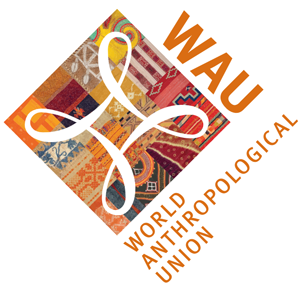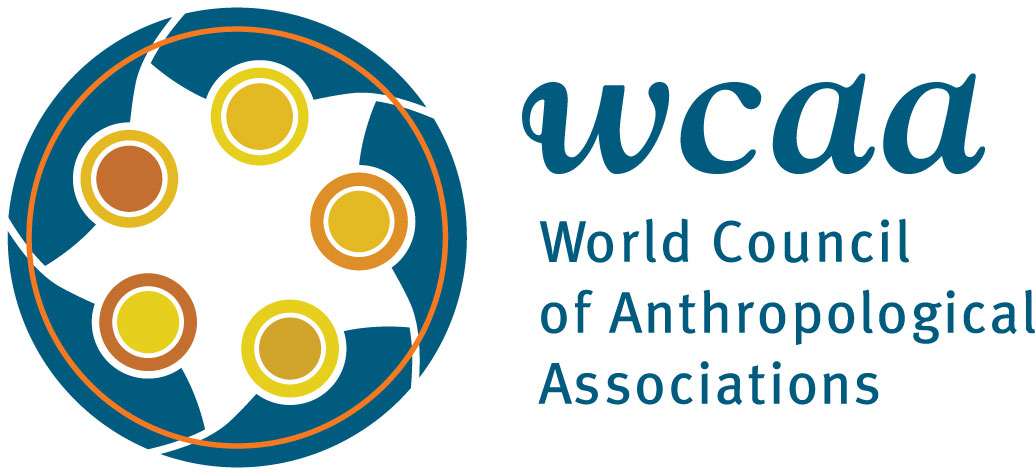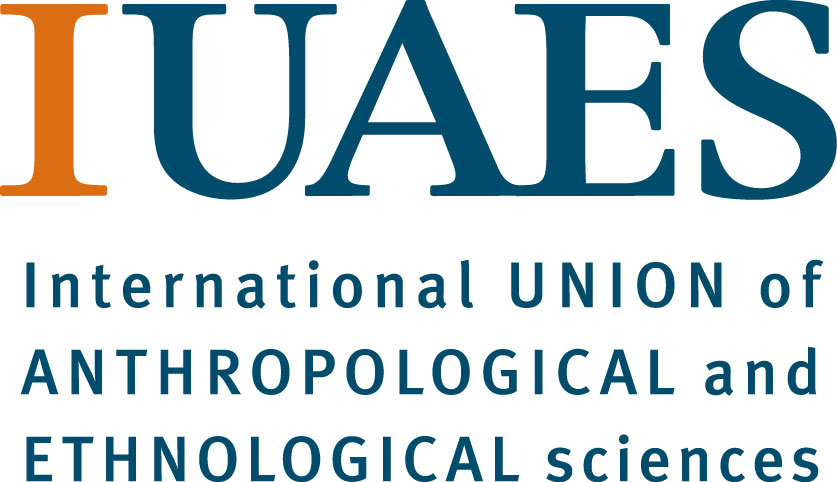
Executive Committee (2023-2027)
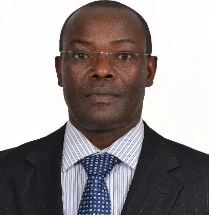 President
President
Isaac Nyamongo
The Cooperative University of Kenya
Read more
Isaac K. Nyamongo (PhD – 1998, Univ of Florida) is a Professor of Anthropology (since 2011). He is a decorated Moran of the Burning Spear (2022) by the President of the Republic of Kenya. He served as the Director of the Institute of Anthropology, Gender and African Studies at the University of Nairobi and currently as the Deputy Vice Chancellor (Academics, Cooperative Development, Research and Innovation) at the Cooperative University of Kenya. He has close to 30 years in teaching, research and consultancy. He has supervised and mentored more than 40 students both at Doctoral and Masters levels within Anthropology. Prof. Nyamongo has held research and training grants from many organizations including the European Union, World Health Organization, International Development Research Center, Wenner Gren Foundation and Toyota Foundation among others. His research and training experience spans several countries within the Africa region including Kenya, Uganda, Mozambique, Tanzania, Zambia, South Sudan, Somalia, Ethiopia and Eritrea. Prof. Nyamongo has more than 60 peerreviewed publications in scientific journals. In addition, he has published books and book chapters. Further, he has held visiting Professor positions in the US as a Fulbright Scholar (2008-2009) and in South Africa where he was a Carnegie Mellon Fellow (2012).
HONOURS: 2022 — Moran of the Burning Spear (MBS); 2022 — Recipient of the International Cooperative Champion Award; and 2022 — Recipient of the Pelto International Award.
CONTRIBUTION TO ANTHROPOLOGY & PROFESSIONAL AFFILIATIONS: As a member of faculty, I have had the singular opportunity to train the next generation of Anthropologists (from different countries) during the last 30+ years. I have mentored young academics by actively involving them in research projects thus granting them firsthand experience of anthropological fieldwork.
I have been a member of various national, regional and other Anthropology organizations. I am an active member of the Kenya Anthropological Association; a member of Pan-African Anthropological Association (where I served as Treasurer and President respectively); a member of the Society for Applied Anthropology where I now serve in the Pelto International Award Committee; a member of the IUAES where I served as member and co-chair of the Committee on Documentation; and has been a member of the American Anthropological Association.
Currently I serve as Chair of the World Council for Anthropological Associations and co-chair of the World Anthropological Union. As a member and Chair of the WCAA Organizing Committee and co-Chair to WAU Steering Committee, I have worked with colleagues towards a harmonious integration of the WCAA and IUAES. These efforts include making the WCAA webinars a joint work of the WCAA and IUAES, the creation of a one website for WCAA, IUAES and WAU among other initiatives. Over my period as WCAA Chair, we welcomed three new Associations into WCAA.
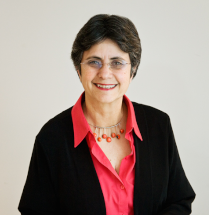 Secretary-General
Secretary-General
Virginia R. Dominguez
USA
Read more
Virginia R. Dominguez (B.A. 1973, M.Phil. 1975, and Ph.D. 1979 Yale University in the U.S.) was born in Havana, Cuba, attended high school in Montevideo, Uruguay, and became a U.S. citizen in 1969. She is now the Edward William and Jane Marr Gutgsell Professor of Anthropology (and member of the Jewish Studies, Middle Eastern Studies, and Caribbean Studies faculty) at the University of Illinois at Urbana-Champaign in the United States. She is also cofounder and consulting director of the International Forum for U.S. Studies (established in 1995 at the University of Iowa in the U.S., with Professor Jane Desmond then at the University of Iowa) and co-editor of its book series, Global Studies of the United States, now published by the University of Illinois Press.
A political and legal anthropologist, she was president of the American Anthropological Association from 2009 to 2011, editor of American Ethnologist from 2002 to 2007, and president of the AAA’s Society for Cultural Anthropology from 1999 to 2001. In 2013 she helped the World Council of Anthropological Associations establish the Brazil-based Antropologos sem fronteiras (Anthropologists without Borders) and a couple of years later she established and became President of Anthropologos sem fronteiras/Anthropologists without Borders-US. In 2014 she became Associate Editor of the American Anthropologist in charge of the section on World Anthropology/ies, a task she undertook until 2020/21 publishing authors from around the world in every issue of AA. Author, co-author, editor, and co-editor of multiple books, she is perhaps best known for her work on the Caribbean, the U.S., and Israel (especially in The Caribbean and Its Implications for the United States; White by Definition: Social Classification in Creole Louisiana; and People as Subject, People as Object: Selfhood and Peoplehood in Contemporary Israel).
Her most recent books are America Observed: On an International Anthropology of the United States (coedited with Professor Jasmin Habib of the University of Waterloo in Canada, and published by Berghahn Press), Global Perspectives on the U.S. (coedited with Professor Jane Desmond of UIUC in the U.S. and published by the University of Illinois Press) and Anthropological Lives: An Introduction to the Profession of Anthropology (coauthored with Brigittine French of Grinnell College in the U.S. and published by Rutgers University Press). In 2023 she also coedited a special section of Vibrant with Brazil’s Professor Carmen Rial on anthropology/ies of the world, and is in line to publish a special issue of Etnografica (in Portugal) with Argentina’s Professor Mariano Perelman on neoliberalism and anthropology in the world.
Prior to joining the University of Illinois-Urbana/Champaign faculty in 2007, she taught at Duke University (in the U.S.), the Hebrew University of Jerusalem (in Israel), the University of California at Santa Cruz (in the U.S)., the University of Iowa (in the U.S.), and Eotvos Lorand University (in Hungary). She has also been Directrice d’Etudes at the Ecole des Hautes Etudes en Sciences Sociales) in Paris, France, a Simon Professor at the University of Manchester in England, a Mellon Fellow at the University of CapeTown in South Africa, a Morgan Lecturer at the University of Rochester in the U.S., a research fellow at the East-West Center in Honolulu, Hawai'i (in the U.S.), and a Junior Fellow in the Society of Fellows at Harvard University (in the U.S.). Internationally, she has served on the World Anthropological Union’s Steering Committee (since 2018), the World Council of Anthropological Associations’ Organising Committee (from 2018 to 2023), the WCAA’s Publishing Council (since 2020), the Ad Hoc WAU Task Force on Human Rights, the WAU Task Force on Digital Technologies, and the International Science Council’s Finance and Fundraising Committee (since 2019). She has been on editorial boards in India, Canada, Israel. England, and the U.S.
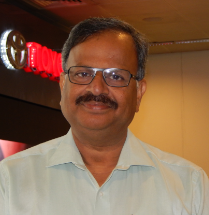 Senior Vice-President
Senior Vice-President
Soumendra Patnaik
Department of Anthropology, University of Delhi
Read more
Educational Qualifications: M.Sc ( 1983 ) M.Phil (1986) and Ph.D (1994) in Anthropology from the University of Delhi
Work Experience: Teaching Social Anthropology at the University of Delhi since 1990. (33 years) Formerly,Vice Chancellor, Utkal University (2017-2020)
Research Interests: Globalization, Development Studies, Kinship and Family, Displacement and Rehabilitation, Tribal Communities, Ethnography and theory
BOOKS : 4 : RESEARCH PAPERS : 45
Contributions to the discipline through IUAES, WCAA, WAU
I have been attending all annual and full IUAES congresses for past 12 years at Perth, Australia (2011), Manchester, United Kingdom (2013), Japan(2014), Bangkok, Thailand (2015), Dubrovnik (2016), Canada (2017), Florianopolis, Brazil (2018), Poland (2019), Croatia (2020) and Yucatan, Mexico (2021). I have organized Panels and Round Tables on different occasions in addition to presenting Research Papers.
I have been involved with WCAA since 2008 and attended its Biennial meetings held at Maynooth, Ireland (2010). I also organized WCAA Global Symposium and WCAA biennial meet in India (2012). I was elected to WCAA Organizing Committee at Taipei, Taiwan in 2014 and served as a member OC from 2014 to 2018. I was one of the Founding members of Anthropology Without Borders 2018 (India Chapter) of WCAA. Currently I am the organizer of 19th IUAES -WAU World Anthropology Congress in October 2023 in India.
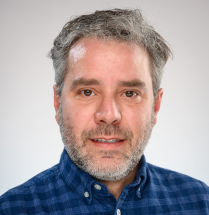 Head of Council on Commissions
Head of Council on Commissions
Felipe Fernandes
Read more
Professor at the Federal University of Bahia, in the Department of Anthropology and Ethnology. Coordinator of Gira - Feminist Studies Group in Politics and Education. Tutor of the Tutorial Education Program (PET) Connections of Knowledge - Indigenous Communities. Co-head of the Council of Commissions of the International Union of Anthropological and Ethnological Sciences (2023-2027). Member of the Steering Committee of the World Anthropological Union (2023-2024). Master's degree in Education from the Federal University of Rio Grande (2007), where, as a member of the Sexuality and School Studies Group (GESE), defended his dissertation on the construction of gay activist identity in Brazil. Ph.D. in Human Sciences, in the field of Gender Studies, from the Federal University of Santa Catarina (2011) (with a doctoral internship at the Center for Lesbian and Gay Studies - CLAGS at the City University of New York - CUNY) and a member of the Center for Gender Identities and Subjectivities (NIGS), defended his thesis on the educational policies implemented in the two terms of the Lula government, through the Federal Program Brazil Without Homophobia. Post-doctorate in Gender Studies (PPGICH/ UFSC), in Social Anthropology (EHESS/ Toulouse), and in Anthropology of Education (PPGAS/ UFSC). In 2019, he was a junior visiting professor with a CAPES scholarship at the Research Chair on Homophobia at the University of Quebec in Montreal. His research interests include policies on gender and diversity, as well as practices of associativism in LGBTTT and feminist movements. Currently, he is researching indigenous school education in the state of Bahia. His main areas of interest are Gender Education, Sexualities, Diversity, and Anthropology.
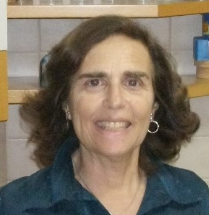 Deputy Head of Council on Commissions
Deputy Head of Council on Commissions
Anita Nudelman
Read more
Applied medical anthropologist and educator, with expertise in innovative qualitative research methods. She has worked extensively on health issues among adolescents, immigrants and cultural minorities in Israel, with long-term involvement with Ethiopian immigrants, including interaction with traditional healers, as well as workshops for health providers to bridge cultural and gender gaps in health care and health promotion. She also developed an interactive culture-sensitive model for sexual and reproductive health for adolescents and youth in multi-cultural Israeli society.
Collaborated with colleagues in Africa on comprehensive culture and gender transformative sexuality education (including HIV prevention) for adolescents and youth, including program development, training and mentoring of young people and community leaders, such as SHIP -Sexual Health Improvement Project (Population Secretariat of Uganda), and SLYCHA (Sierra Leone Youth Coalition on HIV and AIDS), which are still active a decade later.
Consultancies for international and governmental agencies: UNAIDS sponsored participatory community based Rapid Assessment Processes (RAP) in high-burden countries (Cameroon, Nigeria, Democratic Republic of Congo, Ethiopia, Uganda and India) on culture and gender barriers to PMTCT; and in Gambia (Action Aid/the Global Fund), including development of a new national strategy for Information, Education, Communication/Behavior Change Communication (IEC/BCC) regarding HIV and AIDS. All these projects had a strong component of mentoring young professionals and community members, so they could conduct future projects.
Obtained her Ph.D. in Health Education and Anthropology (2008) at the Eotvos Lorand University, Budapest, Hungary: Thesis subject: Adolescent Sexuality among Ethiopian Immigrants in Israel, and her M.A. Anthropological Sciences (1985), in the Faculty of Philosophy and Social Sciences, National University of Buenos Aires, Argentina
Lectures at the Faculty of Health Sciences at Ben Gurion University in Israel, including courses on Medical Anthropology, Qualitative Research Methods for Community Health Professionals (Nurses, Physiotherapy and EM students) and coordinates the year-long course: “Practicing Global Health in specific contexts” at MSIH (International Medicine Program), focusing on enhancing culture sensitivity and on capacity building of medical students in preparation for their clerkships in developing countries.
Was a member of the Management Committee of COST IS 1206: "Femicide across Europe" of the European Union Cooperation in Science and Technology Action (2014-2018) and is a member of the Israeli Observatory on Femicide. Together with Dr. Santiago Boira she developed a tool to help detect warning lights and thus reduce/prevent GBV and femicide
Chair of the Commission on Anthropology of Pandemics at the IUAES from its inception in 2021, previously Deputy Chair and Chair of the IUAES Commission on the Anthropology of HIV and AIDS (2014-2021) and member of other professional organizations, including the Pan African Association of Anthropologists (PAAA).
Participated in numerous professional working groups, conferences and webinars, and has written book chapters and academic articles on Ethiopian immigrants, sexual health and femicide, as well others exploring perceptions of maternal health and HIV.
Speaks English, Spanish and Hebrew (fluent); French (basic)
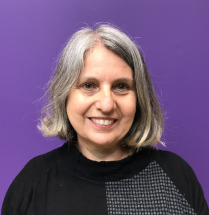 Vice President
Vice President
Miriam Grossi
Brazil
Read more
I am Brazilian, an anthropologist trained in Brazil at UFRGS - Universidade Federal do Rio Grande do Sul, and in France at the Université de Paris V, where I obtained my doctorate in 1988. In 1989, I joined as a professor at the Federal University of Santa Catarina (UFSC), where I built my career in teaching and research in the fields of gender studies, methodology, and history of anthropology, supervising undergraduate and postgraduate research for over 200 students. In addition to my affiliation with UFSC, I have been a visiting professor at various other Brazilian universities and in France (Ecole des Hautes Etudes en Sciences Sociales, Université de Paris 3), the United States (Columbia University), Portugal (ISCTE), and Chile (Universidad de Chile).
My connection with the current IUAES began in 1993 when I participated in the IUAES Congress (then ICAES) in Mexico City. Being at the beginning of my anthropological career, being able to meet the global anthropological community was incredibly captivating. In 1998, although I had papers accepted for presentation at the Williamsburg Congress, I was unable to attend due to high costs and difficulties in obtaining a visa to the United States. Since 2004, when WCAA was created at the congress of the Brazilian Anthropological Association held in Recife, where I was elected and assumed my mandate as president of the Brazilian Association, I have been following the articulations of global anthropological associations and have been attending the IUAES congresses again, such as the one in Kunming, China, in 2009. At this congress, along with other Brazilian and Latin American colleagues, we initiated the project of organizing an IUAES congress in Brazil. As there was already a strong candidacy from Manchester for the 2013 Congress, we proposed to submit our candidacy for the following congress, which finally took place in 2018 in Florianópolis under my general coordination.
Between 2013 and 2018, I served on the IUAES board as vice president responsible for organizing the 18th Congress in Florianópolis. This gave me the ppportunity to understand how our association works and closely follow the main challenges faced by the IUAES at that time. During the five years I was part of the board, under the presidency of Faye Harrisson and with Junji Koysumi as secretary general, our main challenges included: a) global integration of anthropologists from all continents into the association. We organized inter-congresses on all continents (Japan in 2014, Thailand in 2015, Croatia in 2016, Canada in 2017), culminating in the congress in Brazil. b) coordination between the two global anthropological associations - IUAES and WCAA within WAU; c) revitalization of the association through thematic commissions, which allowed the integration of anthropologists from new generations, enabling significant renewal of the IUAES.
I stepped away from the IUAES during the 2018-2023 term because I became involved in important Brazilian scientific associations. I served as president of ANPOCS, the main association that brings together anthropology, sociology, and political science in Brazil, for the 2019/2020 biennium. I was elected as a representative of the scientific community in the humanities for the CNPq Deliberative Council (2020/2024), as well as a member of the board of SBPC - Brazilian Society for the Advancement of Science, an association that encompasses scientific associations from all fields of knowledge and has a strong impact on science and technology policy in Brazil.
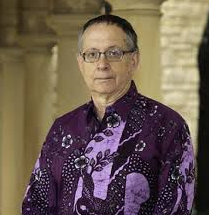 Vice President
Vice President
Greg Acciaioli
The University of Western Australia
Read more
Since beginning my academic career as a teacher and researcher in Anthropology, I have taken the initiative to serve in various professional organisations in this field. In my first two years (1991-1992) at The University of Western Australia (UWA), I served as treasurer of the Anthropological Society of Western Australia (ASWA) and then became a regular member of the executive committee. I served two terms as ASWA president (1994-1995) and have served as a vice-president ever since, as well as on the ASWA professional committee. I first served on the executive of the national representative body, the Australian Anthropological Society (AAS), in 2001, after having worked on the organising committee of the annual AAS conference the previous year, including running the ethnographic film festival for that conference. I later served as AAS secretary for one two-year term (2007-2008). After having convened in 2011 a joint conference of the AAS, ASAANZ, and IUAES (still the largest AAS conference ever mounted) in 2011, I was subsequently elected to a three-year term as AAS president-elect / president / president emeritus (2015-2018). During my tenure as president I oversaw the revision of the AAS constitution to accord with new by-laws for voluntary organisations within New South Wales, in which AAS is incorporated, and introduced a new membership fee structure.
Since beginning my academic career as a teacher and researcher in Anthropology, I have taken the initiative to serve in various professional organisations in this field. In my first two years (1991-1992) at The University of Western Australia (UWA), I served as treasurer of the Anthropological Society of Western Australia (ASWA) and then became a regular member of the executive committee. I served two terms as ASWA president (1994-1995) and have served as a vice-president ever since, as well as on the ASWA professional committee. I first served on the executive of the national representative body, the Australian Anthropological Society (AAS), in 2001, after having worked on the organising committee of the annual AAS conference the previous year, including running the ethnographic film festival for that conference. I later served as AAS secretary for one two-year term (2007-2008). After having convened in 2011 a joint conference of the AAS, ASAANZ, and IUAES (still the largest AAS conference ever mounted) in 2011, I was subsequently elected to a three-year term as AAS president-elect / president / president emeritus (2015-2018). During my tenure as president I oversaw the revision of the AAS constitution to accord with new by-laws for voluntary organisations within New South Wales, in which AAS is incorporated, and introduced a new membership fee structure.
The achievement of which I am perhaps most proud across these service roles was my proposing, initiating and carrying out along with a team of two other Australian anthropologists, Pam McGrath and Adele Millard, the Global Survey of Anthropological Practice (GSAP) for the WCAA. This was the first survey at an international level that explored the state of the anthropological profession, including assessing the range of positions occupied both within and outside academia, publishing practices, and other aspects of anthropological careers. While analyses of the national and regional subsets of results of this survey have been published in various venues, the most comprehensive collection to date has appeared earlier this year as a special issue of Vibrant: Virtual Brazilian Anthropology, the journal of the Brazilian Association of Anthropology, in which I have contributed two co-authored papers, dealing with the general findings at the global level of GSAP and the history of the project.
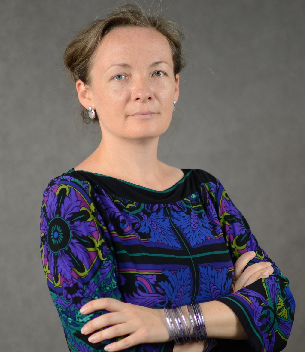 Vice President
Vice President
Natalia Bloch
Adam Mickiewicz University in Poznań, Poland
Read more
My academic work is situated within the anthropology of mobility, with a special focus on colonial legacies in contemporary migration and tourism, global mobility regimes, and the intersections of various forms of spatial mobility. I conduct research in India – in Tibetan refugee settlements, among evicted residents of the UNESCO World Heritage site, and with mobile workers and small entrepreneurs in the informal tourism sector. I am also involved in both research and applied projects on migrant integration and Ukrainian refugees’ reception in Poland. I teach courses in postcolonial theory, anthropology of migration, anthropology of tourism, and refugee studies. I am the author of the book Encounters across Difference. Tourism and Overcoming Subalternity in India (Lexington Books 2021) and the co-editor (with Kathleen M. Adams) of the volume Intersections of Tourism, Migration, and Exile (Routledge 2023). My articles have appeared in, among others: Critique of Anthropology, Critical Asian Studies, Journal of Refugee Studies, Annals of Tourism Research, and Transfers. Interdisciplinary Journal of Mobility Studies.
I have been involved with IUAES since the 2013 Congress in Manchester, when I joined the Commission on the Anthropology of Tourism. Since then, I have attended all but one IUAES congresses. Each time, I co-organised and convened panels (with, among others, Kathleen M. Adams, Noel B. Salazar, and Lillian Marie Wallace), mostly in cooperation with other IUAES Commissions, and have served as a member of the Scientific Committee twice. In 2018, I was elected a co-deputy chair of the Commission on the Anthropology of Tourism, and in 2021, its co-chair. As such, I am a member of the IUAES Council of Commissions, trying to take an active part in its activities. Since 2020, I have been a member of the World Anthropological Union task force for WAU projects, in which I am responsible for WAU online workshops project, together with Virginia R. Dominguez.
My biggest achievement in the field of organisational work for IUAES is serving as a co-coordinator (together with Łukasz Kaczmarek) of the Organising Committee of the IUAES2019 Inter-congress “World Solidarities” in Poznań (Poland) at Adam Mickiewicz University. It was the last fully on-site IUAES congress, gathering over 600 participants from 60 countries who presented their research across 103 panels. The congress was co-organised by the Polish Ethnological Association (a member of WCAA) and was the biggest event of this kind in the history of Polish anthropology and ethnology. It took place during the centennial year of Poznań’s university and the discipline of ethnology at this university. At the congress, we called for the solidarity of our colleagues in the face of removing ethnology from the list of officially recognised scientific disciplines by the Polish government. A number of support letters and the activities of Polish anthropologists ultimately succeeded and led to ethnology and cultural anthropology being placed back on the list.
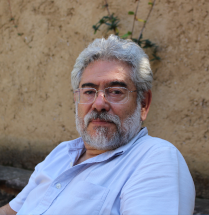 Vice President
Vice President
Fernando Salmeron
Read more
Fernando I. Salmerón Castro has a Ph.D. in Sociology from the University of Texas at Austin, a Master's in Social Anthropology from the Colegio de Michoacán and a BA in International Relations from the Colegio de México. He is a member of the Mexican Academy of Sciences.
Since 1984, he has been a Professor-Researcher at the Center for Research and Higher Studies in Social Anthropology (CIESAS), one of the Public Centers coordinated by CONACYT. He has been a visiting professor at the University of California, Santa Barbara, and San Diego campuses. From September 2007 to August 2016, he had a license to occupy the position of General Coordinator of Intercultural and Bilingual Education in the Ministry of Public Education, where he headed the educational policy on cultural diversity and interculturality. During this period, he gave lectures and workshops to very wide audiences of teachers and educational supervisors throughout the country. Between May 13, 2019, and May 13, 2020, he was General Director of CIESAS.
Member of the American Anthropological Association and the American Sociological Association. In 2005-2006 he was president of the CEAS (College of Ethnologists and Social Anthropologists) a Mexican professional organization which has brought together anthropology professionals in a space for the representation and defense of the discipline since the 1970s. In this period the CEAS joined the WCAA. Fernando Salmerón represented the CEAS at the Osaka, Japan meeting in June 2008.
He has conducted research on issues of sociocultural anthropology; politics, power, and economics; urban studies and territoriality of medium-sized cities; public policies and strategic resources; methodology of research in social sciences and on the labor field of social anthropology. He has promoted projects on migration and communities of Mexican origin in the United States, as well as education and cultural diversity. Among his recent publications are analyzes on intercultural education, rural and indigenous education, inclusive education, and human rights in Mexico.
Derived from these research topics, throughout his academic career, he has published books, papers, and specialized peer reviewed chapters. He has also published reviews, translations, and articles for general audiences. He has participated as a speaker and panelist in multiple conferences, seminars, panels, and academic meetings in Mexico and abroad. In the area of human resource training, he has taught undergraduate and postgraduate courses at CIESAS, the Universidad Veracruzana, the National School of Anthropology and History, El Colegio de Michoacán, and the University of California at Santa Bárbara. He has also supervised bachelor's, master’s, and doctoral theses. In recent years he has participated in various working groups on inclusive education, rural, indigenous and intercultural education in Mexico.
 Treasurer
Treasurer
Helen Macdonald
University of Cape Town, South Africa
Read more
Education:
PhD (Anthropology) – School of Oriental and African Studies, London (2004)
Residential course, Professional Practice in Applied Multi-Disciplinary Research, UK (2004) MA (Anthropology) - University of Otago, New Zealand (1993)
BA (Anthropology and Psychology) - University of Otago, New Zealand (1990) BCom (Accounting and Finance) - University of Otago, New Zealand (1989)
International and National Activities:
Treasurer for World Council of Anthropological Associations (2018-present)
President of Anthropology Southern Africa (2017-present) Treasurer for Anthropology Southern Africa (2011-2017)
Treasurer - Conference Organising Committee member for Anthropology Southern Africa conference (University of Venda, 2016; NorthWest University, 2015; University of Cape Town, 2012)
Webmaster for Anthropology Southern Africa (http://www.asnahome.org) (2015-present) 1-2 October 2014 - World Council of Anthropological Associations (WCAA) hosted by
Academia Sinica, Taipei. Represented the WCAA member association, Anthropology Southern Africa (ASnA).
5-10 August 2013 - IUAES World Congress: Evolving Humanity, Emerging Worlds, University of Manchester, UK.
1-3 April 2012 – International Symposium organized by WCAA, ASA, IAS and Indian Anthropological Association & Department of Anthropology, University of Delhi, India. Represented the WCAA member association, Anthropology Southern Africa (ASnA).
Professional Grants:
Wenner Gren Conference Grant for annual ASnA Conference (2016) (US$10,310) National Institute for the Humanities and Social Sciences Grant for a regional workshop – ‘Building Regional Cooperation and Growth through Decolonising the Discipline’ (2016) (ZAR50,000)
Current membership of professional organisations:
Member of The International Union of Anthropological and Ethnological Sciences (IUAES) Member of Anthropology Southern Africa (ASnA)
Member of American Anthropological Association (AAA) Member of Association of Social Anthropologists UK (ASA)
For information on research and scholarly publications, see: http://www.anthropology.uct.ac.za/san/people/academic/macdonald
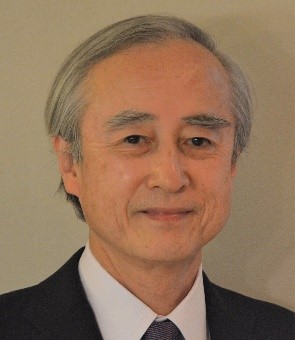 Past President
Past President
Junji Koizumi
Osaka University, Japan
Read
more
Titles: President, the International Union of Anthropological and Ethnological Sciences
(IUAES); Auditor, the National Institutes for the Humanities (NIHU); Former Trustee and Vice President,
Professor Emeritus, Osaka University; Former Chair, World Council of Anthropological Associations
(WCAA); Former President, Japanese Society of Cultural Anthropology (JASCA)
Born 1948, Tokyo, Japan
Degrees:
PhD (anthropology) 1981, Stanford University; MA (anthropology) 1977, Stanford University; MA
(sociology) 1975, University of Tokyo; BA (Liberal Arts) 1973, University of Tokyo
Positions Held:
NIHU: Auditor, the National Institutes for the Humanities (NIHU)*, Japan
(2016-Present). Osaka University: Professor Emeritus (2013-Present), Professor
(1996-2013), Associate Professor (1990-96), School of Human Sciences, Osaka University; Trustee and Vice
President (2007-11), Director General - University Library (2007-11), Chief Information Officer (CIO)
(2007-10), Advisor to the President (2006-07), Dean - School of Human Sciences (2004-06), Osaka
University; Specially Appointed Professor, Institute for Academic Initiatives (IAI) (2013-2016), Osaka
University; Invited Professor (2013-16), Adjunct Professor (2007-13), Founding Director (2007), Global
Collaboration Center (GLOCOL), Osaka University. Other institutions: Vice
Director, International Institute for Advanced Studies (IIAS) (2013-15); Associate Professor, Niigata
University (1987-90); Lecturer and Associate Professor, Aichi Kenritsu University (1982-87); Izaak
Walton Killam Post-Doctoral Scholar and Sessional Lecturer, University of Alberta, Canada
(1981-82). Invitation: Ralph E. and Doris M. Hansmann Member, School of Social
Science, the Institute for Advanced Study, Princeton (1996-97). National
Organization: President, Japanese Society of Cultural Anthropology (JASCA)
(2012-14). International organizations: President (2018-Present),
Secretary-General (2009-18), IUAES (International Union of Anthropological and Ethnological Sciences);
Chair/Facilitator, WCAA (World Council of Anthropological Associations) (2005-09).
* NIHU comprises National Museum of Ethnology (Osaka), International Research Center for Japanese Studies (Kyoto), Research Institute for Humanity and Nature (Kyoto), National Museum of Japanese History (Chiba), National Institute of Japanese Literature (Tokyo), and National Institute for Japanese Language and Linguistics (Tokyo).
Professional Service & Leadership Experiences
For the Government:
Member, Science Council of Japan (SCJ) (2006-Present); Member, the Central Education Council (Division
of Graduate Education), Ministry of Education, Culture, Sports, Science and Technology (MEXT, Japan)
(2009-13); Member, Commission for University Evaluation and Accreditation, the National Institution for
Academic Degrees and University Evaluation (NIAD-UE, Japan) (2014-17); Associate Member, Committee for
the Promotion of Advanced Research in Private Universities, MEXT (2004-07); Advisory Board, Committee
for International Cooperation for Central American and Caribbean Region, Japan International Cooperation
Agency (JICA) (2002-06).
For MEXT/JSPS:
Member, Selection Committee for the Program for Advancing Strategic International Networks to Accelerate
the Circulation of Talented Researchers, Japan Society for the Promotion of Science (JSPS)
(2015-Present); Member and Chair of the Human Sciences, Selection Committee for JSPS Fellows, JSPS
(2013-15); Chair, Committee for the Grants-in-aid for scientific research -- field studies in the
humanities and social sciences, JSPS (2005-06); Associate Member, Selection Committee for the
Grants-in-aid for scientific research, JSPS (2000-02); Associate Member, Selection Committee for the
Grant-in-Aid for JSPS Fellows, (JSPS) (1999-2001); Member, Evaluation Committee,Comparative Studies
on Ancient American Civilizations,Grant-in-Aid for Scientific Research on Innovative Areas,
JSPS (2013-Present).
For Local Government:
Expert advisor, Governing council of the Expo’ 70 Commemorative Park, Osaka (2014-15)
For International Organizations:
President and Secretary-General, International Union of Anthropological and Ethnological Sciences
(IUAES) (2009-Present); National Delegate of Japan, IUAES (1998-2009). Chair (2008-09), Facilitator
(2005-08), World Council of Anthropological Associations (WCAA). Member, Transition Task Force (TTF),
ICSU/ISSC (2016-17). Review Panel Member, European Research Council (ERC).
For International Conferences:
Member, Scientific Program Committee, World Social Science Forum 2018 (ISSC), Fukuoka, Japan; Secretary
General and Vice President, FIEALC 2003 OSAKA - Federación Internacional de Estudios sobre América
Latina y el Caribe, XI Congreso, Osaka, Japan (2003); Member, Organization Committee, IUAES 2002 Tokyo
(2002 Inter-Congress of the International Union of Anthropological and Ethnological Sciences), Tokyo,
Japan (2002).
For Professional Associations:
President, Japanese Society of Cultural Anthropology (JASCA) (2012-14); Board of Directors, (1992-94,
1996-98, 2002-06), Chair of Committee for International Relations (2003-06), JASCA; Board of Directors,
Japanese Association of Latin American Studies (JALAS) (2003-06)
For National Institutions:
Auditor, the National Institutes for the Humanities (NIHU) (2016-Present); Chair, Evaluation Board
(2010-16), Member, Executive Board (2000-10), National Museum of Ethnology; Visiting Professor, National
Institute of Informatics (2009-12); Advisory Board, Research Institute for Languages and Cultures of
Asia and Africa, Tokyo University of Foreign Studies (2007-10); Evaluation Board, Faculty of
Intercultural Studies, Kobe University (2007); Evaluation Board, Humanistic, Social and Educational
Sciences, Niigata University (2006).
For Other Institutions:
Member, Research Planning Board (2015-Present), Vice Director (2013-15), International Institute for
Advanced Studies (IIAS); Director– Institute of Social Research (2013-Present), Distinguished Advisor
(2011-13), Institute of Nuclear Safety System, Inc. (INSS); Board, Kobayashi International Scholarship
Foundation (2011-Present); Board, Japan Educational Exchanges and Services (JEES) (2007-13); Selection
Board, Nomura Foundation (2006-13)
For Projects:
Leader, Global COE Program A Research Base for Conflict Studies in the Humanities,
Ministry of Education, Culture, Sports, Science and Technology (MEXT), Osaka University (2007-12);
Leader, Cooperation Program for Asian Human Resources Development, Ministry of Economy, Trade
and Industry (METI), Osaka University (2008-11); Leader, Anthropological Study of Productivity of
Borders and Transnationality, Research Project by the Grants-in-aid for scientific research,
MEXT (2006-09); Sub-leader, The 21st Century COE Program Interface Studies in the Humanities,
MEXT, Osaka University (2002-07); Leader, Dynamics of Cultures and Systems in the Pacific Rim,
Research Project by the Grants-in-aid for scientific research, MEXT (1997-2000)
For Academic Journals:
Board of Editors,American Anthropologist(2008-12),Collaborative
Anthropologies(2007-Present),Annals of Latin American Studies(Japanese/English/Spanish)
(2002-04),Japanese Review of Cultural Anthropology(1993-98),Minzokugaku Kenkyu: Japanese
Journal of Ethnology(Japanese) (1992-94),Canadian Journal of
Anthropology(1982-86)
Specialization:
interpretive theories, Latin American Studies, globalization, transnationality, social and
economic transformation, conflict studies, international cooperation, ethnography of Central America;
field research mainly in Central America.
Membership:
Japanese Society of Cultural Anthropology (JASCA, formerly Japanese Society of Ethnology);
American Anthropological Association (AAA); The Royal Anthropological Institute of Great Britain and
Ireland (RAI); Japanese Association of Latin American Studies (JALAS); Latin American Studies
Association (LASA)
Selected Publications:
“Japanese Society of Cultural Anthropology (JASCA)”, in The International Encyclopedia
of Anthropology (H. Callan, ed), John Wiley & Sons, Inc. (2018); “Global Anthropology
versus Anthropologies”, American Anthropologist Vol. 118 (4), pp. 857–858; 2016 “Notes
on the Globalization of Japanese Anthropology” (The 2nd JASCA International Symposium: The
Internationalization of Japanese Cultural Anthropology and the Attempt to Strengthen the Overseas
Dissemination of Information), Japanese Review of Cultural anthropology (JRCA) 16, pp. 105-112,
2016; “Introduction: Special Issue, Anthropology of Japan in Korea and Anthropology of Korea in
Japan” (with Okpyo Moon), Japanese Review of Cultural anthropology (JRCA) 16, pp.
149-155, 2016; “Fiftieth Anniversary Conference of Japanese Society of Cultural Anthropology
(IUAES 2014 with JASCA) and World Anthropologies” (Japanese). Bunkajinruigaku: Japanese
Journal of Cultural Anthropology79(4), pp. 460-66, 2015; “Fifty Years of the Japanese
Society of Cultural Anthropology” (Japanese), Gakushikai Kaiho No. 906, pp. 45-50, 2014;
“Afterword: Art and Anthropology” (Japanese/English), in The Power of Images: The
National Museum of Ethnology Collection (National Museum of Ethnology, pp. 264-269, 2014); Book
Series: Conflict Studies in the Humanities, 4 vols. (Koizumi, Junji and Eisei Kurimoto, gen.
eds.), Osaka University Press, 2012; Migration and Identities: Conflict and the New Horizon (ed.
with Mayumi Kudo. Conflict Studies in the Humanities, Special Issue, 2011); “Introduction:
Toward Conflict Studies in the Humanities” (Japanese), Conflict no jinbungaku (Conflict
Studies in the Humanities) vol. 1, pp. 1-13, 2009; “Development Strategy and Human
Security” (Japanese, with Masahisa Fujita), Gakujutsu no Doko (Trends in Academic
Studies), Feb 2008, pp. 55-60, 2008; Becoming a Practical Researcher: Realities in the
Human Sciences (Japanese, ed. with Kokichi Shimizu), Yuhikaku, 2007; Transnationality
Studies (Japanese, ed. with Eisei Kurimoto), Report of the 21st Century COE Program, Osaka
University, 2007; Etnicidad y Estado nacional en Huehuetenango, Guatemala: el resultado de las
elecciones y el problema del nacionalismo comunal (Spanish), El mundo maya: miradas japonesas
(Ochiai, Kazuyasu, ed.) UACSHUM - Unidad Academica de Ciencias Sociales y Humanidades, Mexico,
pp.157-77, 2006; “Pluralizing Anthropology,” Anthropology News 46(7), p.9, 2005;
“The Foundation of the World Council of Anthropological Associations: Towards International
Cooperation in Anthropology and Ethnology” (Japanese), Bunkajinruigaku: Japanese Journal of
Cultural Anthropology 69(4), pp.607-12, 2005; Transnationality Studies: Productivity of
Borders (Japanese), (ed. with Eisei Kurimoto, Report of the 21st Century COE Program, Osaka
University, 2004); Dynamics of Cultures and Systems in the Pacific Rim: Anthropological Studies
(Koizumi, Junji, ed.), Osaka University Press, 2003; “Economic Change and Cultural Constancy:
Migrant Labor, Coffee Production and Communal Identity in Huehuetenango, Guatemala,” in
Dynamics of Cultures and Systems in the Pacific Rim: Anthropological Studies, pp. 243-72, 2003;
Interpretive Anthropology and Anti Anti-Relativism, Collection of essays by Clifford Geertz
(Japanese) (Koizumi, Junji, trans. ed.), Misuzu Shobo, 2002; “What Has Been Being Said: Anti
Anti-Relativism and Reductionism” (Japanese), in Kaishaku Jinruigaku to Han Han Sotaishugi
(Interpretive Anthropology and Anti Anti-Relativism), pp.196-225, 2002; “Interpretation
of Cultures: On the Notion of 'Agreement'” (Japanese), Bunkajinruigaku (Cultural
Anthropology) vol.13, pp.175-203, Iwanami-shoten, 1998; “Costume and Politics of the
Modern Maya: A Case of Guatemala” (Japanese), Ningen Kagakubu Kiyo (Bulletin of the School of
Human Sciences),vol. 22, pp.319-40, 1996; “Analyzing Borders: A Case from Guatemala”
(Japanese), in Minzoku no deau katachi (Various Forms of Encounters of Nations), (Kuroda,
Etsuko, ed.) pp. 61-82, Asahi Shinbunsha, 1994; “Ritual and Hermeneutics: On Reducing Symbolic
Forms to Commonsensical Meanings” (Japanese), in Girei: bunka to keishikiteki kodo (Rites:
Culture and Formalized behavior) (Aoki, Tamotsu, and Etsuko Kuroda, eds.) pp. 94-116, Tokyo
Daigaku Shuppankai, 1988)
Papers read (English papers only, last 8 years):
“Reaching Out to the Public, Reaching In to the Policy Agency”, Reaching for the
Decision-makers in the Sphere of Cultural Policies, The 18th World Congress of the
International Union of Anthropological and Ethnological Sciences, Federal University of Santa Catarina,
Florianópolis, Brazil, July 16-20, 2018; “Formation of the World Anthropological Union (WAU):
Opportunities and Challenges in the Time when International Social and Natural Science Councils Merge,”
Antropološke agore, theInstitute of Ethnology and Anthropology, University of Belgrade,
Belgrade, Serbia, February 5, 2018; “Indeterminacy, Marginalization and Production of Ideologies”,
Intellectual Cooperation for Innovation in a Time of Social and Political Challenges,
High-Level International Forum: UNESCO Mexico and Government of the State of Guanajuato, Guanajuato,
Mexico, September 14-15, 2017; “Movement, Loss of Orientation and Populist Racism”, Moving
from marginalization to mutuality, CASCA/IUAES Conference in Ottawa, University of Ottawa,
Canada, May 2-7, 2017; “What World Anthropologies Need for Coping with Global Situations”,
Politics and Policies of Anthropology: Anthropological Association Perspectives towards a Scenario
of Global Crises, the 30th meeting of ABA, the Brazilian Anthropological Association, Joao
Pessoa, Brazil, August 4-5, 2016; “Japanese Anthropology within World Anthropologies,” the
Sixth Advanced Training Seminar for Chinese Youth Anthropologists and Ethnologists, Beifang University
of Nationalities, Yinchuan, China, July 25-30, 2016; “Social sciences and humanities faculties to
close in Japan?” Social and Cultural Anthropology and Ethnology as/and Science: Addressing
Contemporary Instrumentalist Threats to the Humanities, IUAES Inter-Congress 2016 Dubrovnik,
Hotel Dubrovnik Palace, Croatia, May 4-9, 2016; “JASCA and World Anthropologies”, RAM XI (XI
Reunión de Antropología del MERCOSUR), La Universidad de la República, Montevideo, Uruguay, December 2,
2015; “The IUAES, WCAA and JASCA in the Movement for World Anthropologies”, Universidade
Federal de Santa Catarina, Florianópolis, Brazil, November 25, 2015; “Nationalism, Primordial
Sentiments and Governance”, Anthropology of Public Policy and Governance, IUAES
Inter-Congress 2015 Bangkok, Thammasat University Tha Prachan Campus, Bangkok, Thailand, July 16, 2015;
“Current World Anthropology and Social Development of Local People”, 5th Advanced
Training Seminar for Chinese Young Anthropologists and Ethnologists, Dali University, Dali
City, Yun’nan Province, China, June 27, 2015; “Current World Anthropologies, Globalization
and Cultural Diversity”, Puer University, Yun’nan Province, China, November 19, 2014;
“State-Nationalism, Ethno-Nationalism and Communo- Nationalism: Governance and
the Sphere of Primordial Sentiments”, Social Science Forum of China (2014): Social Governance
for Ethnicity or Aboriginal Area, Institute of Ethnology and Anthropology, Chinese Academy of
Social Sciences and Yunnan Minzu University, Kunming, Yun’nan Province, China, November 15-17,
2014; “World Anthropology, World Anthropologies, WCAA and IUAES”, 2014 TSAE/WCAA Joint
Meeting: Contemporary Human Conditions and anthropologies, National Chengchi University,
Taiwan, October 4, 2014; “Current World Anthropologies, Globalization and the Problem of Local
Development”, 4th advanced seminar on Anthropology and Ethnology for Chinese Young
Scholars, Hubei University for Nationalities, En’shi City, Hubei Province, China, July
11, 2014; “Ten Years of the WCAA: Where are we now?” The past and future of the World
Council of Anthropological Associations, IUAES Inter-Congress 2014 with JASCA, Makuhari Messe,
Chiba, Japan, May 15-18, 2014; “Chronological Folk-Urban Continuum: The Process of Micro
Urbanization in northwestern Guatemala”, Urban Futures, IUAES Inter-Congress 2014 with
JASCA, Makuhari Messe, Chiba, Japan, May 15-18, 2014; “Assessing Globalization: Some Notes”,
Evaluando la Globalización: Un Taller sobre Logros y Temas Estrastégicos Futuros, Casa Chata,
Centro de Investigaciones y Estudios Superiores en Antropología Social (CIESAS), Ciudad de México,
February 21, 2014; “Spatial Immobility and Structural Immobility: Circular Migration and its
Outcomes in Northwestern Guatemala”, Displacements and Immobilities: Global Perspectives
on Capitalism - A World Council of Anthropological Associations Biennial Theme Symposium, Part
1, Canadian Anthropology Society (CASCA) Conference 2013, University of Victoria, Canada, May
7-11, 2013; “Globalization and the Challenge of Anthropologies”, invited lecture, Anthropology
Lecture Series, Department of Social and Cultural Anthropology, National University of
Mongolia, Ulan Bator, Mongolia, September 4, 2012; “Conflict Studies in the Humanities”,
Globalisation and Conflict: Entanglement between Local and Cosmopolitan Orientations,
IUAES/AAS/ASAANZ Conference 2011, Knowledge and Value in a Globalising World: Disentangling
Dichotomies, Querying Unities, the University of Western Australia, Perth, Australia, July 5-8,
2011; “Conflict Studies in the Humanities”, keynote lecture at Globalization and
Conflict: Entanglement between Local and Cosmopolitan Orientations, University of Groningen,
the Netherlands, September 28-30, 2010; “Globalization, Appropriation and Conflict”, plenary
keynote lecture at Cultural Appropriation: Assimilation - Adaptation - Camouflage, German
Anthropological Association (GAA-DGV) Conference 2009 (Tagung der Deutschen Gesellschaft fur Vorkerkunde
e.V.), Frankfurt am Main, Germany, September 30 - October 3, 2009; “Linking Anthropologies and
Beyond”, Opportunities and Challenges for International Cooperation and Participation in
Anthropology: Toward an Agenda for World Anthropology, 16th World Congress of IUAES -
International Union of Anthropological and Ethnological Sciences, Kunming, China, July 27-31, 2009;
“The Uses of ‘Development’ in Japan’s Foreign Policy and the Role of
Universities”, International Conference Reframing Development: Post-Development,
Globalization, and the Human Condition, Osaka University, Japan, April 8-10, 2009.
View a list of previous Past Presidents, Secretaries-General and Treasurers here.
